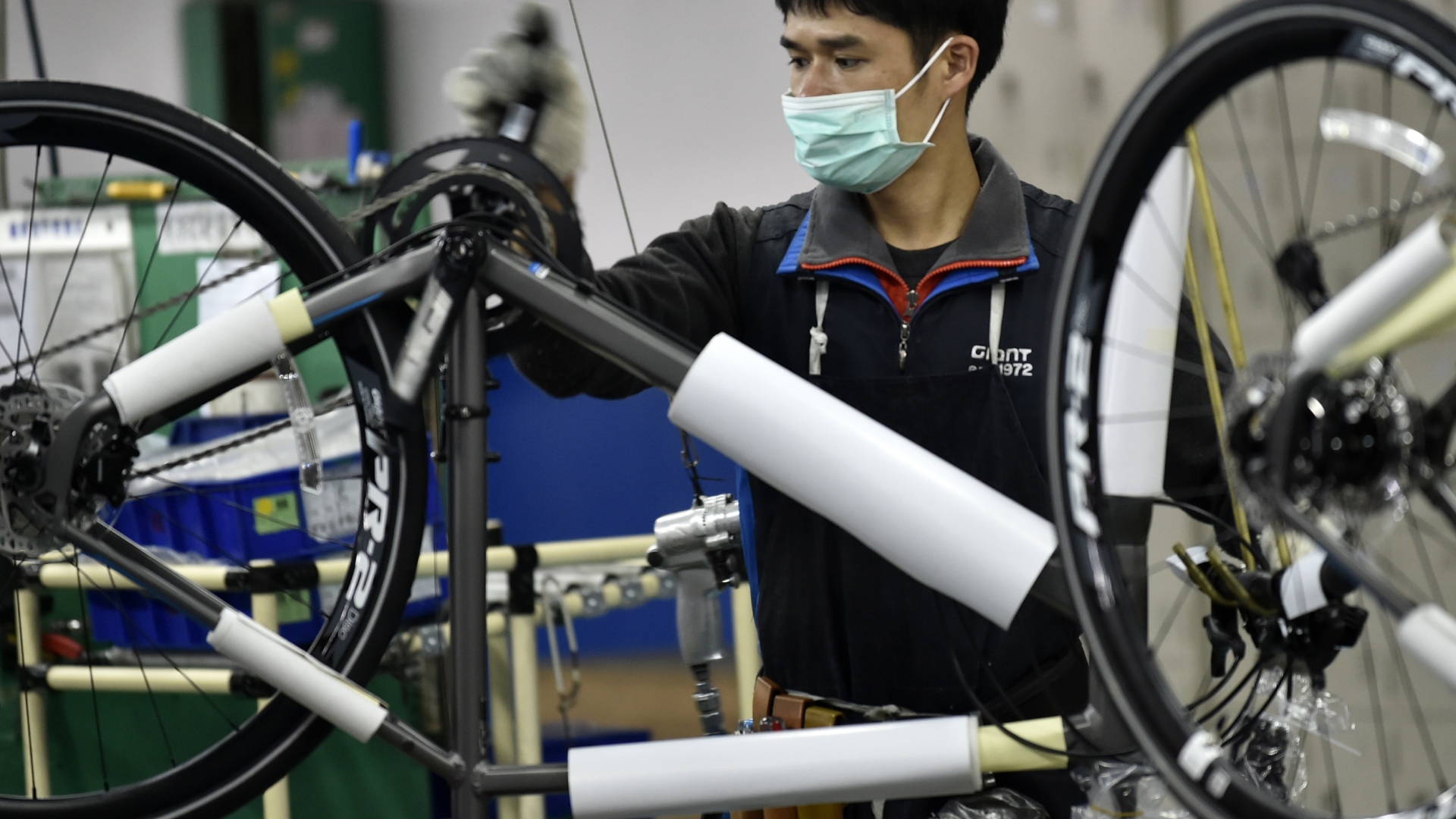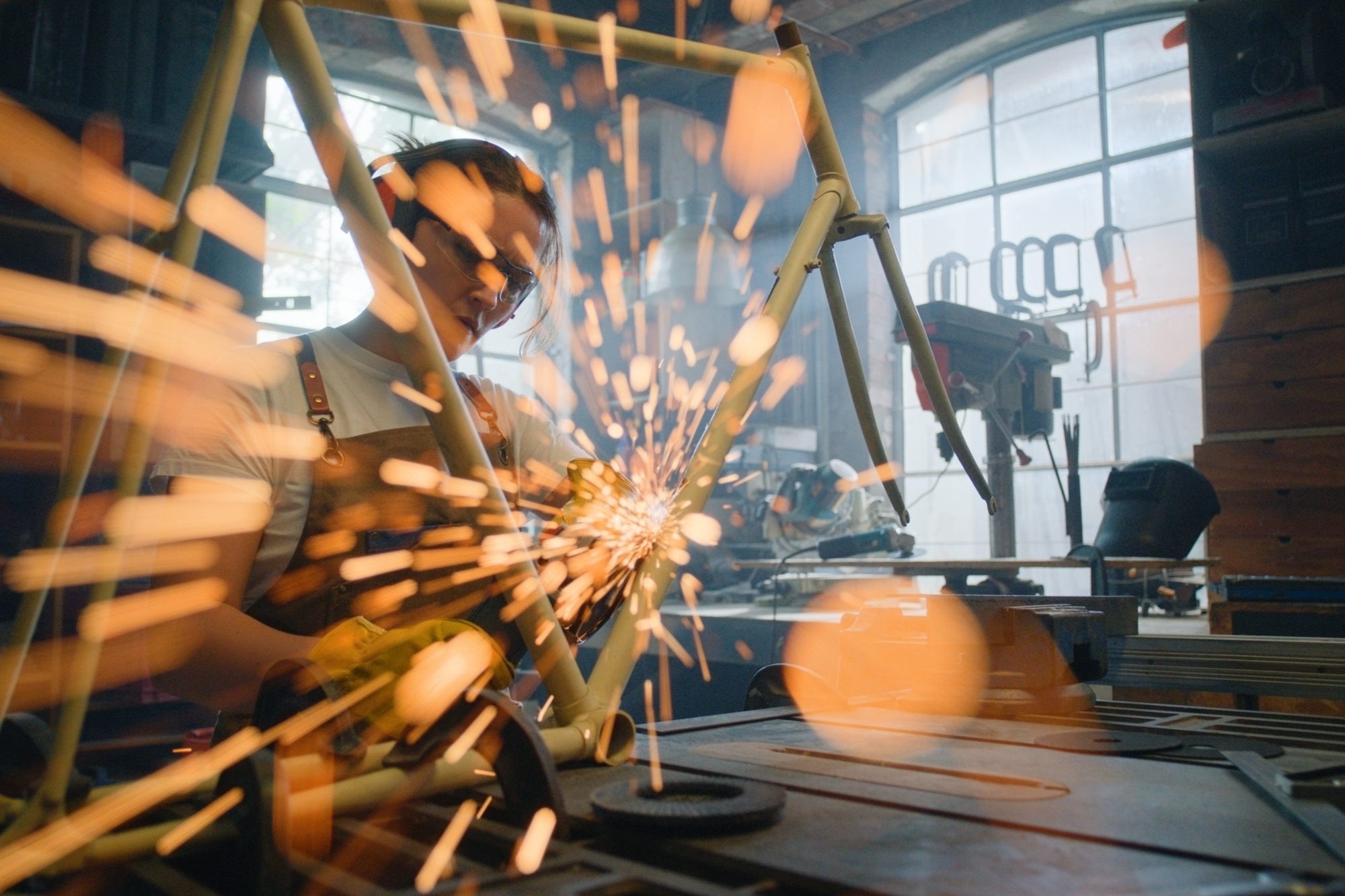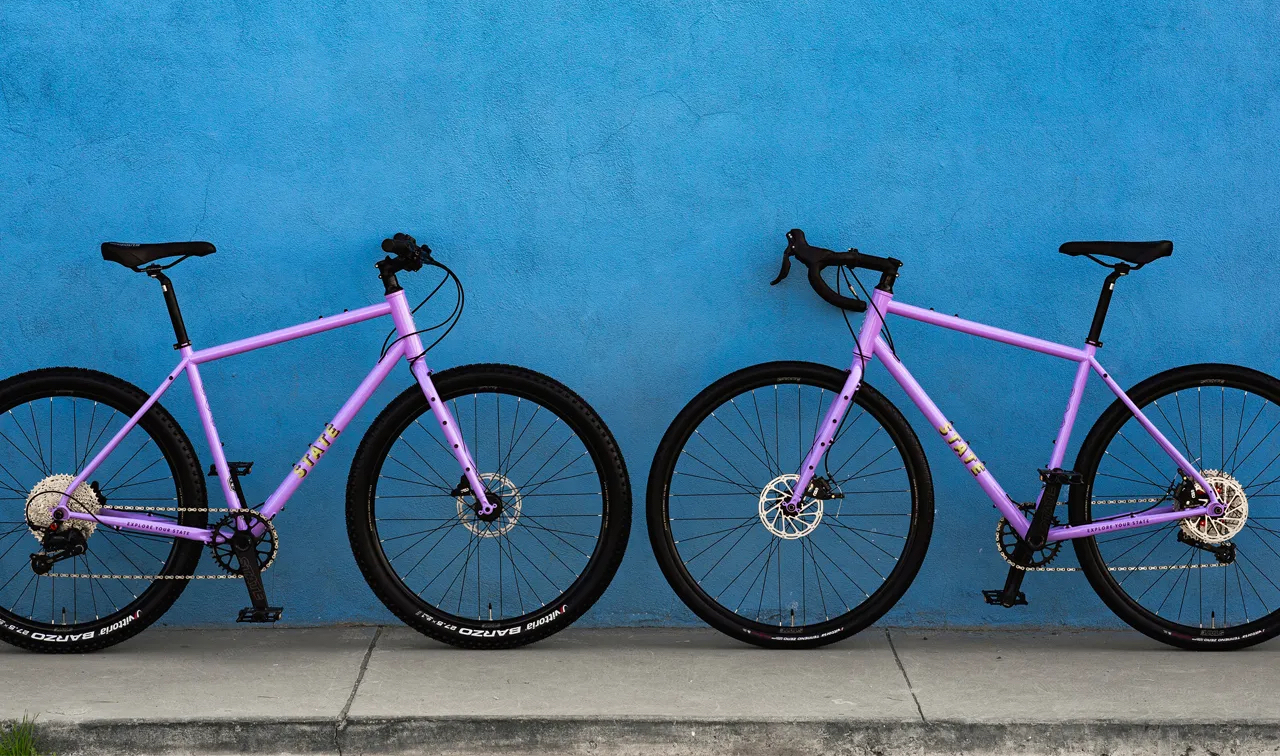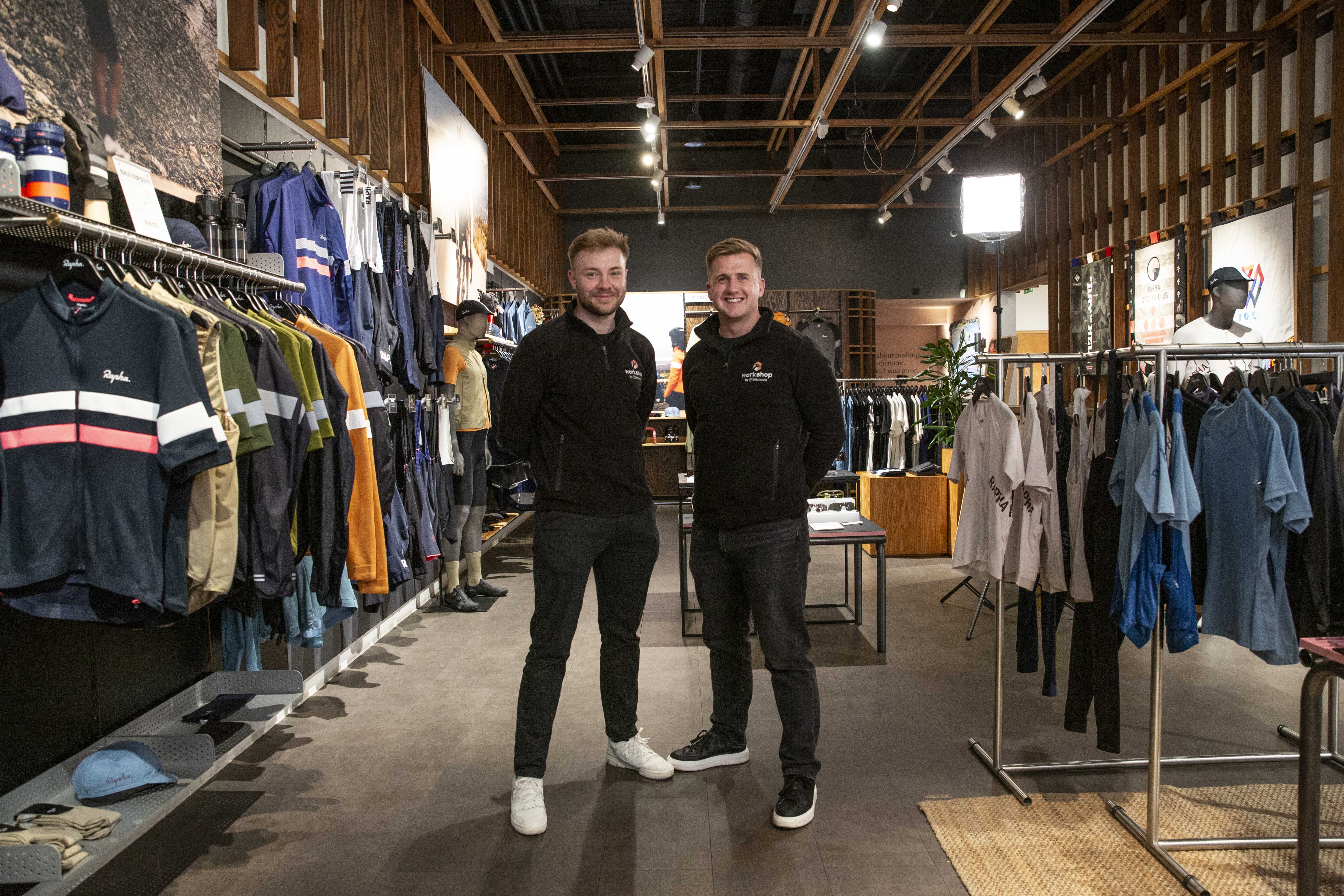'This will ultimately price out certain consumers and hurt demand' - bike companies react to new steel and aluminium tariffs
The US bike industry could be facing a new set of economic challenges as Trump hikes up import taxes


The US bike industry could be facing a new set of economic challenges as President Trump expands tariffs on imported steel and aluminium.
In two separate executive orders signed on 10 February, 2025, Trump expanded the Section 232 tariffs on steel and aluminium originally imposed in 2018. Aluminium tariffs will increase from 10% to 25%, while steel tariffs will remain at 25%. The measures also eliminate previous country-specific exemptions and quotas, applying the tariffs universally to imports from all nations. Additionally, the orders expand the list of affected steel and aluminium derivative products, though specifics on these products have not yet been detailed.
These changes will take effect on 12 March, 2025, and could have immediate consequences for the bicycle industry.
How tariff expansions could impact the bicycle industry

Tariffs are taxes imposed on goods and raw materials imported from other countries. These measures aim to boost U.S. steel and aluminium production and encourage companies to use U.S.-made materials by making foreign products more expensive. However, the bicycle industry relies heavily on foreign imports.
In 2022 alone, the U.S. imported more than $2.2 billion worth of bicycles and components, with the majority coming from China. For years, bicycles and e-bikes were exempt from high tariffs, but those exclusions expired in June 2023. To avoid steep taxes targeted at China, many bike and component manufacturers have been shifting production to countries with lower tariffs. However, under Trump's latest executive order, this strategy is no longer advantageous as the tariffs will now apply universally to imports from all nations.
It’s important to note that raw materials and (partly) finished products are taxed differently.
Starting March 12, raw aluminium will see a tariff increase from 10% to 25%, making aluminium significantly more expensive unless it is manufactured in the United States. Steel tariffs will remain at 25%, but with all exemptions removed, companies that had previously relied on imports from major suppliers like Canada or Mexico will now face higher costs as well.
Get The Leadout Newsletter
The latest race content, interviews, features, reviews and expert buying guides, direct to your inbox!
The executive orders state that the government also intends to expand the list of steel and aluminium derivative products (finished goods) that are subject to tariffs. However, it’s unclear at this time whether specific bicycle components—such as frames, rims and spokes—will be affected.
The measures do contain a new exemption for goods made from U.S.-produced steel and aluminium, which could be good news for manufacturers that source their materials domestically.
The overall impact of these tariffs remains uncertain. Some industry leaders caution that consumers will ultimately bear the burden of rising manufacturing costs, while others believe it is too early to sound the alarm.
Specialized, a major U.S. bicycle brand that outsources production to Taiwan and China, declined to speculate, stating: "We are unable to make comments on any shift in economic policy until we’re clear on what these changes entail. Our goal is and will always be to serve riders in every possible way."
Mehdi Farsi, co-founder of State Bicycle Company, expressed concern about the changes in tariff policy, claiming they could hurt both businesses and consumers.
“We understand the importance of protecting American workers; however, in speaking about the bicycle industry specificity, the tariffs will have the opposite effect,” Farsi warned.
While State Bicycle Company also offers carbon and, as of recently, titanium bikes, its bread-and-butter are steel and aluminium bikes and components. Like so many bicycle brands, its headquarters may be in the US, but its products are made in Taiwan and China.
“If brands need to raise prices, this will ultimately price out certain consumers and hurt demand, leading to cuts in our industry,” Farsi continued. “We hope the administration can take a more surgical approach utilising exemptions for lower-priced consumer goods and focus on on-shoring production of critical items such as medicine and products crucial to our national and cyber security.”
On the other hand, some domestic manufacturers could see an opportunity in the changing landscape. Stinner Frameworks is a California-based brand that builds steel and titanium bikes in the U.S. While it recognises that rising raw material costs could introduce market uncertainty, it says it’s been preparing for such shifts.
“The current tariffs will have little if any impact on our business,” Aaron Stinner, CEO of Stinner Frameworks and Stinner Manufacturing, said.
“While tariffs may shift global sourcing decisions for some companies, our biggest advantage has always been our ability to adapt. We’ve closed the pricing gap with overseas production through automation and lean manufacturing, making U.S.-based manufacturing a competitive option. We believe the future of mobility manufacturing should be here, and we’re proving that it can be done at scale.”
While the long-term impact of these tariffs remains uncertain, the bicycle industry will likely need to adapt to a rapidly shifting economic landscape. Whether through price adjustments, changes in supply chains, or lobbying efforts to reinstate exemptions, the industry faces significant new challenges in the months ahead. Consumers and businesses alike will be watching closely as these policies take effect.

Thank you for reading 20 articles this month* Join now for unlimited access
Enjoy your first month for just £1 / $1 / €1
*Read 5 free articles per month without a subscription

Join now for unlimited access
Try first month for just £1 / $1 / €1

Cycling Weekly's North American Editor, Anne-Marije Rook is old school. She holds a degree in journalism and started out as a newspaper reporter — in print! She can even be seen bringing a pen and notepad to the press conference.
Originally from the Netherlands, she grew up a bike commuter and didn't find bike racing until her early twenties when living in Seattle, Washington. Strengthened by the many miles spent darting around Seattle's hilly streets on a steel single speed, Rook's progression in the sport was a quick one. As she competed at the elite level, her journalism career followed, and soon, she became a full-time cycling journalist. She's now been a journalist for two decades, including 12 years in cycling.
You must confirm your public display name before commenting
Please logout and then login again, you will then be prompted to enter your display name.
-
 'This is the marriage venue, no?': how one rider ran the whole gamut of hallucinations in a single race
'This is the marriage venue, no?': how one rider ran the whole gamut of hallucinations in a single raceKabir Rachure's first RAAM was a crazy experience in more ways than one, he tells Cycling Weekly's Going Long podcast
By James Shrubsall
-
 Full Tour of Britain Women route announced, taking place from North Yorkshire to Glasgow
Full Tour of Britain Women route announced, taking place from North Yorkshire to GlasgowBritish Cycling's Women's WorldTour four-stage race will take place in northern England and Scotland
By Tom Thewlis
-
 Positive signs for UK bike industry as Halfords cycling sales grow
Positive signs for UK bike industry as Halfords cycling sales growRetailer admits that the impact of Donald Trump's tariffs remains to be seen
By Tom Thewlis
-
 'If you want a more affordable bike - now's the chance' - US bike makers warn of price hikes after tariffs take effect
'If you want a more affordable bike - now's the chance' - US bike makers warn of price hikes after tariffs take effectCycling industry consumers set to bear burden of Trump’s tariffs in the US
By Tom Davidson
-
 Heavy discounting cited in cycling company's collapse
Heavy discounting cited in cycling company's collapseDistributor i-ride, which owns bike brand Orro, held a 'huge overstocking clearance' this year
By Tom Davidson
-
 'Decline in cycling' cited as Halfords profits fall
'Decline in cycling' cited as Halfords profits fallStore chain sees profits drop 25% year-on-year
By Tom Davidson
-
 'Things remain tough for everyone in the trade': Cycling distributors unfazed by plummeting profits
'Things remain tough for everyone in the trade': Cycling distributors unfazed by plummeting profitsIndustry holds optimism for recovery, despite continued losses
By Tom Davidson
-
 Cycling industry still 'appealing' to investors, despite turbulent post-Covid period
Cycling industry still 'appealing' to investors, despite turbulent post-Covid periodBrands suffered losses, bike shops closed and other areas of sector hit after pandemic, but industry should still be attractive
By Tom Thewlis
-
 Introducing the start-up that helps cyclists find local mechanics and get a 'better service'
Introducing the start-up that helps cyclists find local mechanics and get a 'better service''We want to support the majority of the smaller, independent chains that are out there,' says Bikebook founder
By Tom Davidson
-
 Major bike retailer posts profits despite 'downward trend' in cycling industry
Major bike retailer posts profits despite 'downward trend' in cycling industryTredz records £1.4m profit after parent company Halfords issues warning
By Tom Davidson